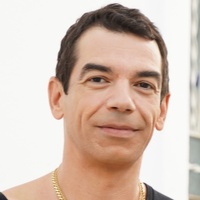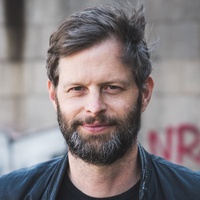On believing in your own voice
Prelude
Rayne Fisher-Quann is a writer and critic who analyzes internet culture, womanhood, mental illness, and identity on her blog, internet princess. Her essays have amassed 55,000+ subscribers and over one million reads.
Conversation
On believing in your own voice
Writer, critic, and essayist Rayne Fisher-Quann discusses the beauty of a deadline, finding balance on and offline, and writing for your intended audience.
As told to Madeline Howard, 1780 words.
Tags: Writing, Culture, Inspiration, Process, Success, Focus, Multi-tasking.
You have a huge social media following. How does posting your ideas on TikTok, Twitter, or Instagram platforms differ from writing for your Substack?
I’ve been on most of those platforms since I was a teenager. My relationships with them have shifted over time, and never consciously. It’s been interesting for me to look back at things that I tweeted when I was 16 and think that I would never engage that way with the internet now. Now that I publish long form on Substack whenever I want to, I post a lot less on TikTok. I’m not as drawn to getting my ideas out in a short form way. Like many people, I have become really frustrated and unsettled with how difficult it is to effectively communicate ideas online.
I’d love to know about your current relationship to social media. How does social media impact your creative work?
I definitely have Stockholm Syndrome with social media, and I think a lot of people do, too. It’s really negative for my creative process in that it’s inherently deadening. The perpetual scroll is a deadening process, especially when so much of my work is the product of extreme emotion. It feels like this weighted blanket on your senses when you’re scrolling and you don’t know why.
Everybody’s always like, “I need to quit Twitter.” That can get kind of annoying at a point because everybody says it and nobody actually does it. You could say this is a functional addiction. But also, I think it’s important to be honest with yourself and realize that if I’m returning to this again and again obviously it is providing me with something. There is something that I want, whether that’d be good or bad or noble, that is overriding all of these negative feelings that I associate with it.
I’m in a unique position where I write about the internet. The internet is a very inspiring place for me just by virtue of the fact that almost everything I write is about the mechanism of the internet. So I’m still trying to find a healthy balance, to figure out a way where I can find the interesting stuff without my brain turning to mush while I’m watching Subway Surfers videos on Tiktok.
What do you think is unique about writing a newsletter? How does your process change when you’re writing for a newsletter versus a media outlet?
The biggest positive for working in mainstream media is having an editor and the structure of deadlines. That’s something a lot of writers hate when they’re in the moment. But I think that there is something unimaginably valuable about someone saying, “You have to get this in at this time, no matter what.” For me, that has looked like me pulling an all-nighter and turning in something shitty. But I’ve learned there is value in having a deadline that motivates you to write 1,000 words. Even if it’s shitty the first time, it puts you in such a good position to create something. The problem with Substack for me is I think it’s really easy to fall into this artistic black hole of wanting something to be perfect so you never actually do it, because the only way that something can be perfect is if it only exists in your head.
To have a harsh editor is also such a gift. When I first started freelance writing when I was 17, I had zero experience with the industry. I remember when I got harsh criticism on a piece, it would feel like I was punched in the gut. That feeling never goes away 100 percent, but I have learned to be appreciative of when somebody gives you a criticism that tears your whole argument apart or forces you to realize your blind spots.
I’m definitely at this stage in my life where I feel like I wake up every morning and I have an entirely new worldview. That’s just what being 20 years old is like. I look back at pieces that I wrote six months ago and think, “How could I have thought that was a good sentence? How could I have thought any of that made sense?” Luckily for me, I’ve always harbored a really narcissistic overconfidence. But I think having an irrational belief in your own voice is like the only way to publish anything when you’re a 20 year-old girl.
Tell me about your writing process. How do you go from having an idea to translating it into writing?
I have trouble treating writing like a job, which sucks because writing is my job. Honestly the way that I’ve always written most effectively, is when I feel an insane breath of emotion, or so much anger, or so much sadness that it bypasses the anxiety or perfectionism or neuroticism. Most of my pieces, particularly the ones that I’ve published on my Substack—and I worry about sounding cringe—are like, I couldn’t stop crying about something for like three days and the only way for me to go to sleep was if I just vomited 3000 words about it. This is why my Substack pieces tend to be more emotional. Without a deadline or without external pressures, I just have to write for an emotional reason or a compulsive need to externalize whatever I’m thinking.
I’d love to know about your creative practices. Do you have any daily habits that help you write regularly?
There’s a couple of things that I do every day. One of them is writing in my Notes App, which I feel is very universal. Girls love the Notes app. One thing that I’ve tried to do is write at least a sentence about whatever I’m thinking or feeling. Usually when I’m falling asleep I often have these trains of thought. For a long time, I was always like, “I’ll remember this in the morning and write it down.” But that never worked. So now like if I’m ever thinking about any ideas, no matter what, I’ll always write it down. I’ll wake myself up in the middle of the night to write down my dreams. When I’m writing an essay, I’ll just go back through my notes app and I’ll find these little fragments I wrote at different times that frequently end up working their way into this much larger idea, which feels very magical.
I am also a big procrastinator. But when I procrastinate, I try to do something else that is creative in some way. I’ve played music my whole life, and I’m always playing guitar and playing piano. That’s really good for me to do when I’m taking a break from writing. It makes me feel personally fulfilled. It’s like when you’re in high school and you have so much homework that you procrastinate by cleaning your room.
I’ve heard you say before that lately people, “write in a way that is reflexively defensive of claims that no sane person would make. They write for the worst-faith interpretation versus the best.” How do you avoid this in your work?
I’ll often see people make an argument and then they will add this claim or this aside that is very reflexively defensive of a stance that no sane person would ever assume somebody of having. I often feel the urge to do that too, because I don’t want to be misunderstood. But the problem with doing that is it gets to a point where you are writing for an audience that you don’t want to be your audience. When you start catering towards an audience who doesn’t want to understand you, that’s the audience that will start to grow. You should start feeding the audience that you want to build around your work.
If you’re desperately trying to cater to the people that were already engaging with your work in bad faith, you’re going to build an audience of people who are engaging with your work in bad faith, because they’ve been taught that you’re catering to them. There is a huge utility when you’re producing creative work to slowly alienate groups of people who aren’t meant to connect with what you’re producing. The goal eventually is not to have the biggest possible audience, it’s to have an audience who connects genuinely with what you believe in, who engages with your work in good faith.
I’ve heard you’re writing a scripted series. What about this medium interests you?
There’s no better feeling than feeling totally creatively invigorated by something. I’ve felt that recently with script writing. I had been having a total writer’s block for months and months. Then I was really lucky and I got approached by a manager to start writing for TV. I had a month where I was just writing a series and it was like a feeling that I hadn’t felt in a long time where every second of every day I was thinking about my pilot, planning and building characters. I don’t know if it’s ever gonna go anywhere, but it feels so good to devote yourself to creativity. It can feel like a religious practice.
Who are your creative inspirations right now?
I’ve been very inspired recently by the work of Marjorie Kemp and Margaret Cavendish. Marjorie Kemp was a 15th century mystic and Margaret Cavendish was the first woman to be admitted into the Royal College of Science in the 17th century. Marjorie Kemp is believed to have written the first autobiography in the English language, which was largely about her experiences with religious psychosis. It’s insane and out of body for me to be reading this work by a woman who lived hundreds and hundreds of years ago who has so many experiences so similar to mine, like how we wanted the same things, how we felt the same way about ourselves. I read her work and then cry for the whole day. To me, that is very creatively inspiring. I love Margaret Cavendish, too, who is said to have written the first science fiction book, which was also kind of self-insert, about her desires and her experiences as an alienated young woman.
Rayne Fisher-Quann Recommends:
Columbo - Richard Levinson, William Link (Television Series)
Meet Me In The Bathroom - Will Lovelace, Dylan Southern, Andrew Cross (Documentary)
Being unafraid
The Book Of Margery Kempe - Margery Kempe (Book)
The Blazing World and Other - Margaret Cavendish (Book)
“Cubs In Five” - The Mountain Goats (Song)
- Name
- Rayne Fisher-Quann
- Vocation
- writer, critic
Some Things
Pagination



